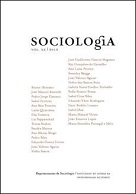The moral economy of person production : the class relations of self-performance on “reality” television
Resumo
Drawing on the textual analysis of an ESRC research project “Making Class and the Self through Mediated Ethical Scenarios”, the paper illustrates how “reality” television offers a visible barometer of a person’s moral value. The research included an examination of the shift to self-legitimation, the increased importance of reflexivity and the decline of class proposed by the individualisation thesis.2 We focused on self-transformation “reality” television programmes as public examples of the dramatisation of individualisation. The over-recruitment of different types of working-class participants to these shows and the positioning of many in need of transformation, enabled an exploration of how certain people and cultures are positioned, evaluated and interpreted as inadequate, deficient and requiring improvement. We found that the individualisation promoted through the programmes was always reliant upon access to and operationalisation of specific social, cultural, economic and symbolic capital.Downloads
Publicado
2017-05-10
Como Citar
Skeggs, B. (2017). The moral economy of person production : the class relations of self-performance on “reality” television. Sociologia: Revista Da Faculdade De Letras Da Universidade Do Porto, 20. Obtido de http://84.247.136.72/ojsletrasX/index.php/Sociologia/article/view/2279
Edição
Secção
Artigos
Licença
Sociologia - Revista da Faculdade de Letras da Universidade do Porto © 1991 criada pela Faculdade de Letras da Universidade do Porto está licenciada com uma Licença CC BY-NC 4.0


